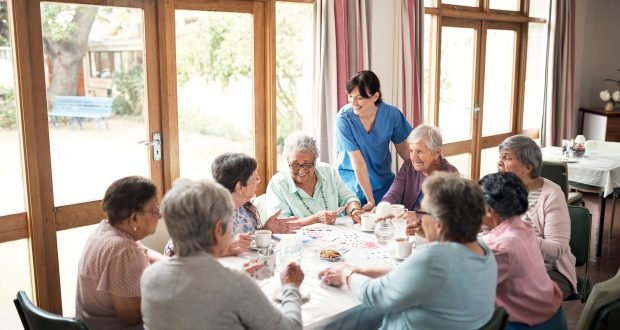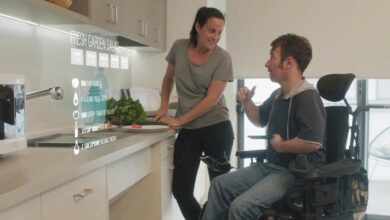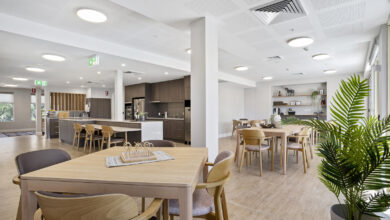Finding out what matters most to residents of aged care

Researchers from Macquarie University have identified the three most important care needs to people living in residential aged care.
After conducting a number of visits to homes the research found they are: being treated with respect by staff members, opportunities for independence and management of medical conditions.
“While the Royal Commission into Aged Care Quality and Safety has identified person-centred care as a means of improving care, a key aspect is acknowledging and respecting people’s preferences and priorities, and this research provides a unique insight into what is most important to aged care residents,” lead researcher Dr Kristiana Ludlow explained.
The residents completed a card sorting activity, called Q-methodology, each card with a picture and an aspect of care written on it. Residents then sort the cards in order of importance with the help of the researchers, who then had a conversation with the resident to delve into the reasons for their choices.
"For the most part, most residents said that staff members were wonderful, but there were some issues with respect sometimes, and one of the main ones was knocking," Ludlow told Aged Care Insite.
"Whether it was a bathroom door or a bedroom door, sometimes they would just come in without knocking, or sometimes they would knock and just enter, and especially for those residents who are quite independent and were always used to having their own home, they viewed their room as their home and yet people were just entering that without permission."
Similarly, while opportunities for independence were seen as important, the feedback Ludlow received was not in criticism of the facilities per se, but an acknowledgement of the nature of living in residential aged care.
"Unfortunately, it's a bigger systems problem. Especially the transition into care. Having these routines of what time they have to eat, and even having a smaller room and things like that, it was a big adjustment, but a lot of residents said, 'but over time, I made my room my own, or sometimes I would say to a staff member, I don't want to shower in the morning, can I have one at night?' So they were finding ways to have independence, in a place that's not always designed to allow them to have independence."
Management of medical conditions was important to the residents involved and they often felt they had to wait too long to be seen by staff.
“Residents told us that staff members were doing their best with the resources they had, but were often too busy to provide certain types of psychosocial care such as engaging in meaningful conversations. Some residents spoke about not being able to access care when needed, including long waits for responses to their call bells,” said Ludlow.
"But often, it's because staff members are with another resident, so there were some people who spoke about having to wait their turn, because they acknowledged that there just weren't enough resources."
The study comes on the back of similar research Ludlow conducted with families and staff members within the aged care space, which found that there was a lot of overlap in priorities between the three groups.
"I wanted to make a complete picture and get all three viewpoints. And the reason I was focusing as part of this research on prioritisation is because residential aged care facilities are pressurised environments, they're often under-resourced. And so if you asked, whether it was a staff member or resident, what are your preferences for care, a lot of them will list so many things, everything's important."
"So, I thought that it was really important to understand priorities. The methods I used actually forced the residents to organise their priorities from lowest to highest," Ludlow said.
"Residents being treated with respect was a top priority for all three groups. And then what I found is there was management of medical conditions that was important for all three groups.
"What I found really interesting was the idea of independence. Across the group, regardless of level of need or dependency, residents wanted some level of independence in whatever way they could, whereas for family members and staff members there were mixed views amongst participants, and there was this conflict between wanting to keep residents safe and managing them medically, and giving them their independence, and so some family members would say, 'Well, my mum can't be independent because she's so reliant on staff.' But talking to some residents who were dependent they'd say, 'Well, I know that I need staff to help me with this and this, but I can do this for myself."
Ludlow argues that to improve the aged care sector, more consumer voices need to be heard and her research gives us just that.
"I feel like this research allows residents with different abilities and different capabilities to express their priorities. And while their preferences have been asked about previously, this is one of the research studies to actually ask about priorities, what is the most important to you?"
Email: [email protected]





